At the United States’ Embassy in Gigiri, Nairobi, Amina became part of the long queue of people with anticipation hidden deep within the folds of skin on their faces. Some faces were long, others cold, others forlorn. Others were shiny from a mixture of facial oil and excitement. Others had hope tucked deep in the rhythms of their fast beating hearts.
Most of the people in these queues were dressed in their best clothing, hoping to create an impression on the consulate officers. People who looked haggard and overwhelmed with the stories of poverty from their community were unlikely to get a visa. The United States frowned upon such people. Everyone seemed to be holding brown envelopes tightly in their arms. It was like brown envelopes had some hidden luck.
Amina did not dress in her most expensive hijab. Her mama had told her that if she went for the interview looking rich they would deny her a visa.
“Rich Africans are thought to be corrupt. You also do not want to look too poor so that you’re not considered a burden to the state,” her mama had said.
Amina chose one of her moderate hijabs. It revealed just as little poverty and as much wealth. She wasn’t sure if it was the anxiety of the interview looming like an omen that made them do it, but people kept peeking inside their document folders, desperate to confirm that everything was in order. They would stare at the size 2×2 photos. They would check to make sure they had the print-out confirmation of the online booking. They would run their fingers through their documents.
Amina ran her eyes over her admission letters to the University of Michigan in the United States several times. She had Kenyan Commercial Bank statements with the word “original” stamped authoritatively across the pages. No one really knew what to expect from US embassy during visa interviews. A consulate officer could out of nowhere ask for the authenticity of a document to prove it was not from River Road.
Fake documents in Nairobi came from River Road. River Road is a dusty tarmac that branches off Tom Mboya Street and goes north east towards the brown waters of Nairobi River. On each side of River Road, buildings brown with age face each other. There are jewelry shops selling original mercury, gold and other precious stones. There are shops selling expensive linen and Italian suits at affordable prices too. Hotels and offices of all sorts at the ground floor intersperse brothels, bars and churches. It is a common joke that the devil and Christ shake hands along River Road every morning. There are Indians and their loyal Kamba watchmen pacing up and down the dusty pavements trying to catch their Kikuyu employees selling goods stolen from their shops to customers. The upper floors have residential houses for third generation Indians. Obese Indian women can be heard yelling obscenities to their house helps from their old sofas in the balcony. The air on the upper floors of River Road is dense with smells of curry and sex. Naked Indian children bask in the sun in the afternoon as prostitutes enjoying a smoke wink at them from across the balcony. There are other businesses too. Massage parlors where immigrants from Ethiopia give massages and other services designed to make a tired mind and body relax. There are also forgers who make anything from birth certificates, to death certificates, to bank statements to degree certificates from Indian universities, to Kenyan passports. There are signs for charlatans such as “Dr. Baraka” from Pemba treating all sorts of malaise from erectile dysfunction, to love, luck and diabetes. Members of parliament are known to come here at night disguised as Muslim women.
Amina’s bank statement did not come from River Road. The bank statement was from a local businessman who had offered it to her father as a gift. Anytime she remembered that day a cold chill stiffened her spine. On that day, her father had called her to bid farewell to the businessman after a long talk. When Amina extended her hands to say thank you, the businessman had held her hands for longer than necessary and fixed his gaze on a spot between her breasts. She folded her shoulders trying to limit the impact of the intrusion as much as she could, but she felt his eyes dig deep into her chest as though he had hidden some in there. He was a man claiming his property. She looked at her dad searching his eyes for an intervention, but he was occupied with the details of the bank statement.
“It is a bad omen for a young girl to be ogled by an old man.”
That was the common saying in school.
“If an old man ogled a young lady, the old man’s charm would shield away the desires of young men wanting courtship, and the girl would eventually get married to an old man.”
Fear had run down her spine and froze in her belly into a tight knot. She could not muster the strength to pull her hand away even though she wanted to. So it was true what her mother had told her. The fate of a woman was decided under a tree by old men chewing khat and groundnuts while sipping warm cokes from a tiny hole on the bottle top—as though the coke were sacred and could only be taken in tiny sips to wash down the mishmash of khat and groundnuts. Her fate was being decided earlier than she had planned. If only the consulate officers would know, she would have her visa sent to her and complete asylum granted without her needing to come to Nairobi to painstakingly explain her case in an interview.
Amina was tense. Her ears were getting numb from the cold wind that kept blowing the hijab off her head revealing wispy hair held back in a tight pony tail. Her hair didn’t look healthy. She had the sisal-like hair that curled like tiny moth balls at the end. She had tried to straighten them and in the process burnt one of her ears with a hot comb. In fear of having her hair fall out of the hijab, Amina’s mother had pulled it so tightly that it gave her headaches. That wasn’t her concern now. The paracetamol she had bought at the Machakos bus stop could as well take care of that. She had traveled from Lodwar for two days to get to Nairobi and was feeling fatigue seeping into her muscles slowly like a shadow.
“Are you waria?” The tout had asked her while motioning for her to move for a passenger in the matatu number 111 to Gigiri.
She’d boarded the bus at Odeon Cinema after asking for directions from newspaper vendors as her mother had instructed her. Nairobi was truly a beehive with a disharmonious buzz mixed with the smells of everything from fresh roses to rotten wounds, to cheap Chinese perfumes and old wigs. It is just exactly as her mum had narrated. It was a place that had everything in the air for everyone and no one in particular.
“No, I am a Kenyan-Somali,” she said feebly as she moved. Kenyan-Somali sounded more legitimate when every Somali looking person was being treated with a mixture of fear and suspicion.
Passengers in the matatu gave her mixed looks. Constant terrorist threats from Somalia had thrown all Somali looking people into one broad category of people who brought dread. Some people said Somalis were capable of pulling a grenade out of their mouth faster than one could swallow nyama choma.
“Ooh so you are actually waria-Somali?” The tout said while wriggling his hips in the seat to create more sitting space for the next passenger.
“Nope just a Kenyan of Somali origin” she said raising her voice and hoping that other passengers would notice the disgust in her voice to his ignorance of the difference between Somalis and Kenyans-of-Somali origin.
“Heading to America?”
“No, actually for a visa interview.”
“You know, I had a friend who went in there, they pushed their fingers into his anus to look for bombs.”
He said it without looking, like he expected the same thing to happen to her.
She tied her hijab tightly and firmed the small knot at the back of her head. In the queue there was a man who groaned and coughed with every a woman nudged his wheelchair he was sitting on. The man’s head was covered in a green sarong with “hakuna matata” written in tiny bold letters all over it. He was doubled over like the cough was landing heavy blows to his lower abdomen. He was clearly suffering from something terrible.
Amina looked at the woman’s face for any emotion but found none. People on the verge of death at the embassy with referral letters from doctors working in big hospitals have been known to experience miraculous healing once they set foot in America. They have been known to rise from their wheelchairs and walk once they have been cleared through the security at the JFK airport. The air in America is full of healing powers. She avoided looking at them again, fearing they might start a conversation and expose her to whatever disease the man had. She needed her luck intact. People in the queue had different types of luck, and you could never be sure which one would rub off on you. She fixed her mind at the embassy gates and the imposing buildings behind them.
“You know they don’t trust Muslims in America?” the tout continued, “They will put something small inside you to see and listen to everything you do.”
She thought of the choices she had. Risk having Americans put something inside her or have the man who gave her father the bank statement put something inside her whenever he pleased.
On the tarmac on the right vehicles zoomed by. Big vehicles with UN plates reflecting the cheerful morning sun. They carried important looking men and women sipping coffee behind dark glasses as their drivers worked on the steering.
“One day I will work there,” Amina told herself. Most of these UN people had also been on these pavements, cold and uncertain and now they were living the dream. Maybe it was worth the struggle.
The queue was moving fast. She would soon come before a consulate officer. She checked through her brown envelope and saw all her documents stacked well. She caught her fingers trembling. It was the November cold in Nairobi. The cold winds blew from Karura forest. A lot of battles for democracy had been fought there. The first African woman to win a Nobel Peace Prize hugged those big trees as men with bows and arrows accompanied by the police pulled off chunks of her braids. “It must be a good omen, the forest has good omens to women’s struggles” she told herself.
“Hey Ma’am, how ya doing today?” a security guy mimicking an African American accent asked her at the gate. He was tall and fit. One of the buttons of his shirt around his chest was snapped on so tightly that Amina feared that it would break and unleash a mean monster from his rib cage to devour her.
“Ma’am ya from Garissa?”
“Yes sir.”
The words jumped scared from her mouth in a hurry. The first step of her going to America was being determined by a security guard with a fake African American accent.
“Mmmmm” he said softly as he brushed through her documents.
“Your appointment was for 7.25am”.
“Yes sir.”
“By the time I finish checking your documents it will be 7.30am”.
She felt something tighten inside her, around her lungs, holding the air back and threatening to burst her alveoli.
“Some people stayed here overnight to make it in time,” he said without looking at her.
The queue was like a long python of people. It snaked through the side walk to a petrol station, its tail disappearing in a corner. There were few fatigued women seating on the sidewalk while others had their children hold the queue for them as they went for refreshments or made photocopies of documents they had forgotten or used the bathroom. She shuffled her feet as she waited for him to hand back her documents. But he did not.
“I arrived from Garissa at 6.30am.”
“Mmmm” he murmured something.
“We stopped at a police station for 3 hours after the police told us that bandits hijacked and robbed people in a bus that was ahead of us”.
The person in the wheel chair behind her coughed one deep hollow irritated cough. There were people murmuring. The kind of murmur that suggests her disorganization was robbing them of precious time.
Amina was keen on studying veterinary medicine in the United States. It was a win for her and her father. Her father knew she would come back and save him the thousands of shillings he was paying someone without training to treat his camels.
“Go and talk to the other gentleman,” the security guard pointed at the GSU person standing at another gate a few meters away.
“Waria shida gani?” He was already shouting to her as she approached him.
“Nimetumwa kwako.”
“Appointment yako kwisha pita,” he said with a smile. At least there was a smile. He traced the furrows in his face as he smiled. She stopped confused at the junction between his brown teeth and blood shot eyes. When he spoke again the distant smell of yesterday night’s booze from his breath hit her face hard.
”Uko na mia tano?” the police man said in a matter of fact that it woke her from her brief reverie.
“Yes sir”.
She had never given a bribe and had thought that there is a ritual to it. She thought they would step aside and turn away from the public view and she would crumple the five hundred shilling note and drop it on the ground. He would then pick it up in a fashion so unique no one would tell it is a bribe. Such rituals she thought would hide the shame and guilt of giving and taking a bribe. Or would make the act mysterious and less surreal. If she missed the interview she would have wasted the visa appointment fee of twenty one thousand shillings plus two days of travel from Garisa. She removed a crisp one thousand note and received five hundred shillings back from the police officer. The transaction was fast and efficient.
*Part 2 of Norbert Odero’s “Encounters at the Embassy” will be posted next week.
*********
Image by Tom Page via Flickr
About the Author:
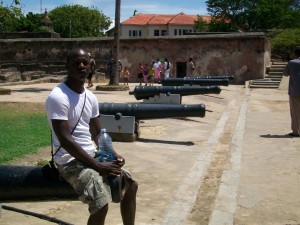 I am an African from Kenya with an old mind trapped in a young body. A tropical disease epidemiologist. An avid student of African culture and politics.I am currently working at the UNC Chapel Hill.
I am an African from Kenya with an old mind trapped in a young body. A tropical disease epidemiologist. An avid student of African culture and politics.I am currently working at the UNC Chapel Hill.


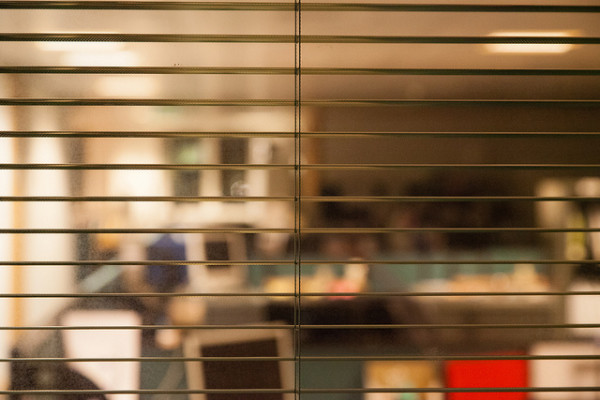
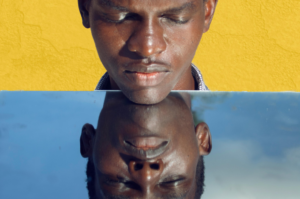

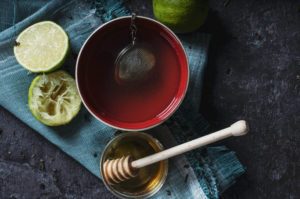

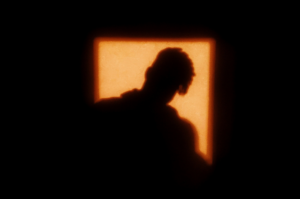
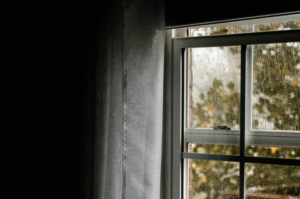

Yael February 19, 2017 07:15
Stunning beautiful and profound. Can't wait to read more, where is Part 2?